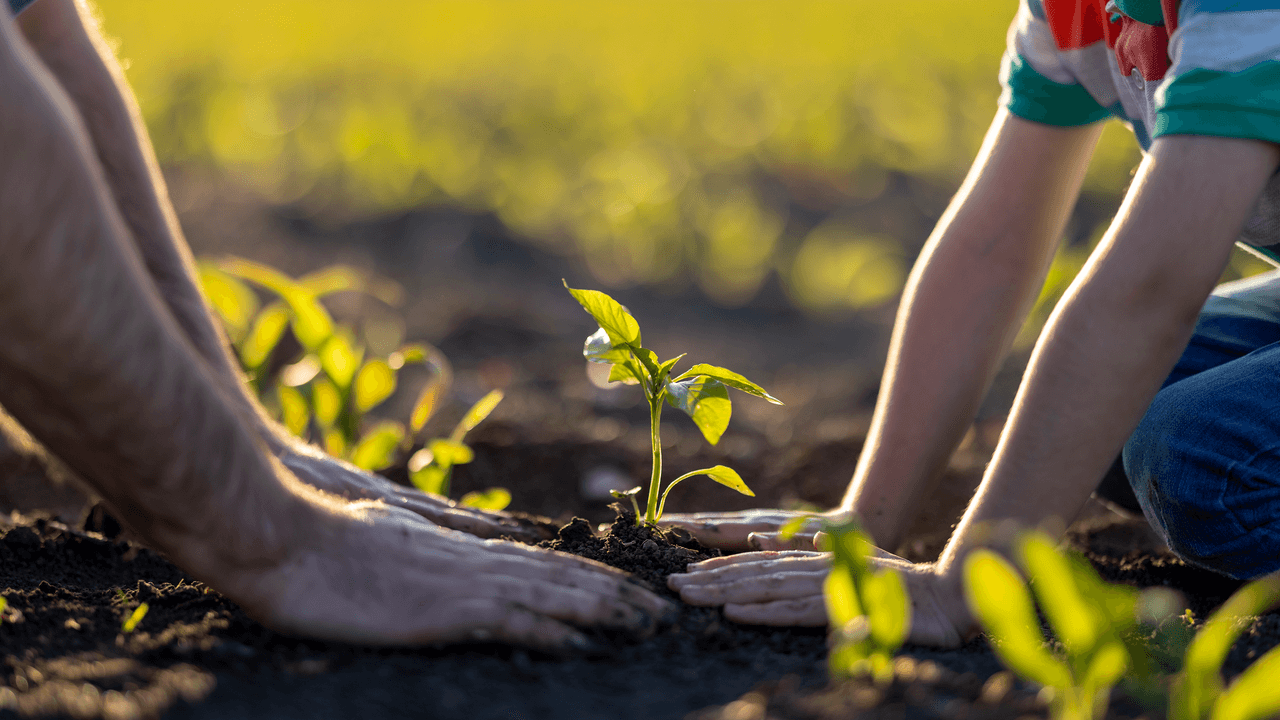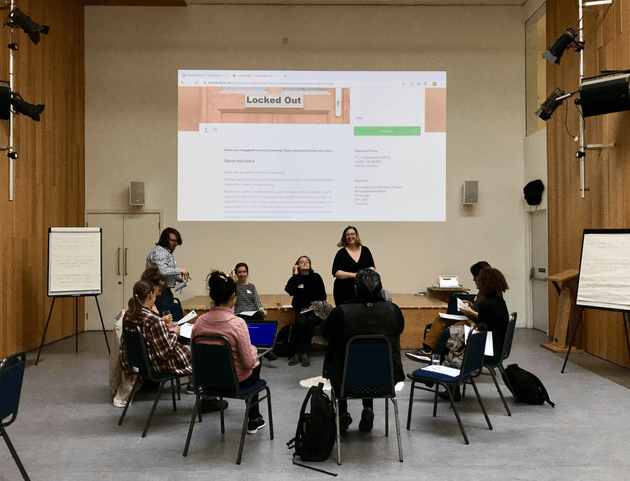
Growing community-led investigations: the Bureau’s new pilot project
When you think about the creation of a news story, where do you imagine its germination? Perhaps in a newspaper office, with the editor’s office in the corner? Some big screens flashing up the headlines of the day and social media trending topics? A conference room hosting a morning meeting where some ideas get the go ahead and others are rejected? But who decides what makes the news and what's important?
At TBIJ, we want to do something different.
We want to put journalism at the heart of communities, equipping them to commission and shape investigations and leaving a legacy of learning for others to access.
That’s why we are launching our new Community-Led Investigations project. Over the next year we will work together with communities that are marginalised, and communities who have been harmed or ignored by the media, on investigations. We will work with them from the seed of an idea through to final storytelling and creating positive change. We will build trust, power and capacity so that the people we work with are equipped to carry on holding power to account in the future.
The lack of representation in UK journalism in general, particularly at senior levels, means that the choice of which stories get published relies on a narrow range of perspectives that doesn’t reflect the UK today and this, we hope, will also go some way in addressing who decides the agenda and what issues citizens think need addressing.
With support from the Google News Initiative, we will also create a programme to share expertise, resources and data widely to support good reporting.
The origin story
Much of the work of the Bureau Local, which was set up more than five years ago now, has been aimed at making the ground for local news and investigations in the UK as fertile as possible. Originally the model was set up to support local reporters in their work, by providing them with rich data and story ideas relevant for their areas, by collaborating as a network on events such as hack days, by offering online community and a space for mutual support, skillsharing and brainstorming.
But over the years the local news sector has been squeezed harder than ever financially and access to it can remain difficult for underrepresented communities.
To address this we ran a project in 2020 called Change the Story, where we worked collaboratively with a group of people from across the UK to re-imagine local news that could serve marginalised communities, and building community along the way through a pop-up newsletter, social media discussions and events. The conclusion of the project was that there was much work to do in order to build local journalism to serve under- and mis-represented communities, but that seeing and acknowledging the issue was a critical step forward to finding solutions.
That project, which published a road map for local news collaborations, a manifesto and a report on under-represented communities and local news, formed the basis for an exciting and innovative Bureau project, the People’s Newsroom.
 One of Bureau Local’s story circle sessions
One of Bureau Local’s story circle sessions
The People’s Newsroom
This bold and ambitious project aimed to create an infrastructure of support for grassroots community news projects and start-ups around the UK, exploring the possibilities for new pipelines into media ownership, shared back-office functions such as legal advice and tech support, as well as open-source editorial resources. It was a collaborative effort, working with partners from On Our Radar to Black Ballad, and with essential support from the Google News Initiative.
As a pilot, the People’s Newsroom team worked with young people at EYST in Wales. These were a group who had traditionally been excluded from and harmed by the media and as a result didn't have much trust in media institutions. The project proved that deep, sustained collaboration on building power through journalism yields real results - participants surveyed at the end of the period said they were much more convinced that journalism was accessible to them, that it could be useful, and that they personally could be part of bringing about positive change in their community.
The pilot showed how much work there is to do to build greater trust in journalism in the UK among some populations and to open it up to communities to harness its power. This work proudly continues through Opus in Sheffield, who are now holding People’s Newsroom coalition work.
Community-led investigations
Our focus going forward in 2023 is to take our expertise in investigative journalism and spend some time really exploring the ways in which investigations can be community led from their inception. We want to move beyond story choices being made by journalists and look at how we both get out into communities to work with them to design our investigations, and ensure that we build a pipeline into our newsroom of talented journalists from underrepresented backgrounds who can explore investigative work from their perspectives.
We’re going to do this by:
- Working with groups traditionally under represented by the media
- Listening to communities and what they see as the key issues that should be dug into and collaborating over time with them to explore these
- Innovating and experimenting with investigations, not being afraid to fail once in a while in the pursuit of success and being transparent about our process.
Through experimenting over a pilot period in 2023 we will aim to publish a toolkit/playbook for how to create community-led investigations in the UK that others can use and adapt, thus scaling the model.
“Helping journalists to equip themselves with a range of digital tools to research, verify and visualize their stories has been a focus for Google over many years – we’ve trained nearly 18 thousand UK journalists and journalism students since 2015. We hope our support for Bureau Local will help to create tools and techniques for journalists to use everyday – strengthening original storytelling and the connections between readers and the communities they serve.” – Matt Cooke, Head of Google News Lab.
We’ll also continue to build, expand and adapt our Bureau Local network, a community of people committed to the public right to accessible news and information and to holding power to account, nationally and locally. Our aim in the coming year is to open up the network even more beyond traditional journalists and to serve groups, networks and people that represent excluded communities and to build power together.
We will design regular sessions for people to share and access expertise and mentoring, to brainstorm ideas and problem solve and to explore ways in which news and investigative skills can help to create positive change. We will also work on a new resource hub that will be designed to be a useful and accessible one-stop shop for data and statistics in the public interest.
The aim is to create a fertiliser effect, which will then allow others to grow the seeds of their own stories from scratch, in a way that’s useful and nourishing for their communities.



